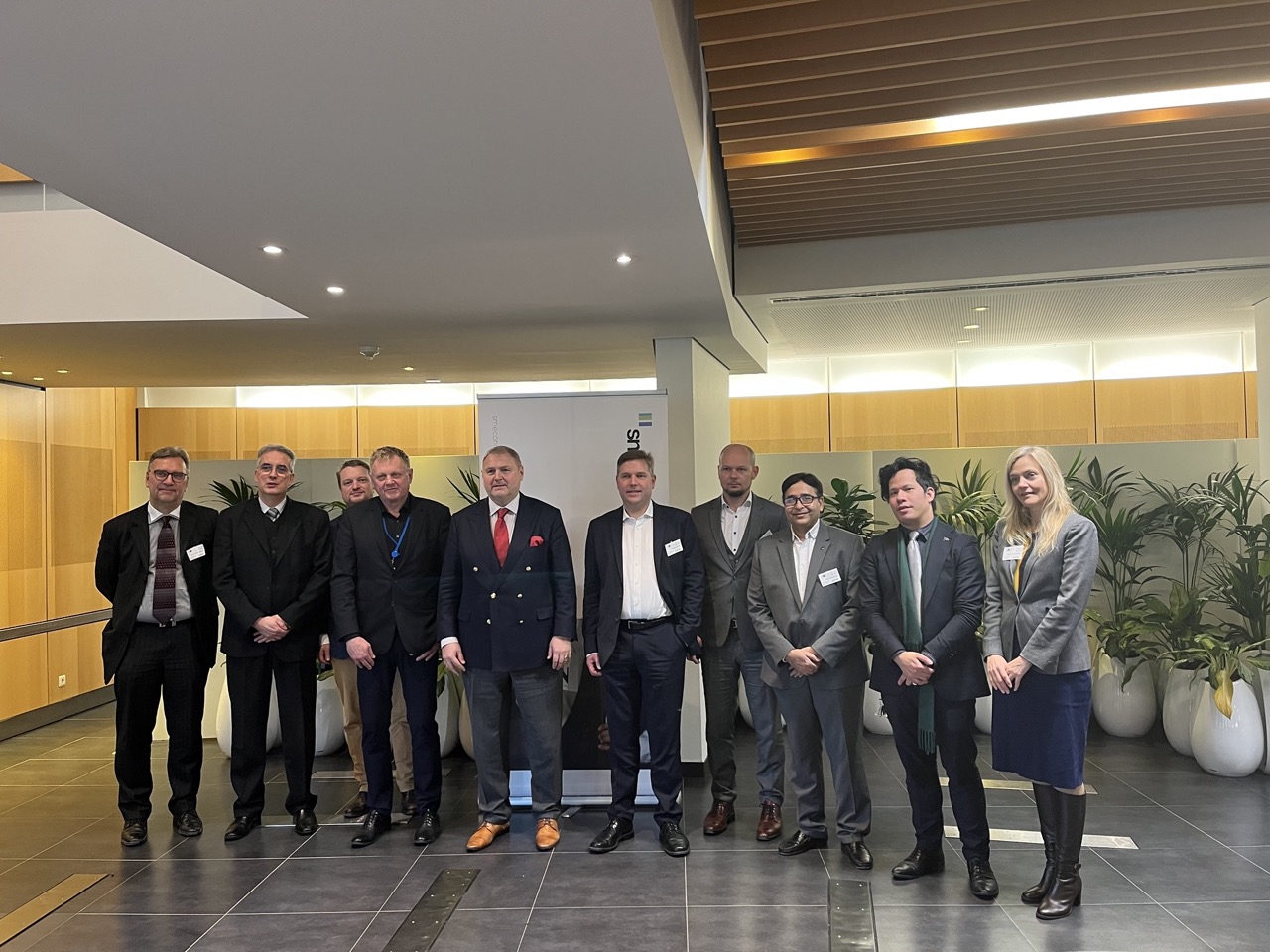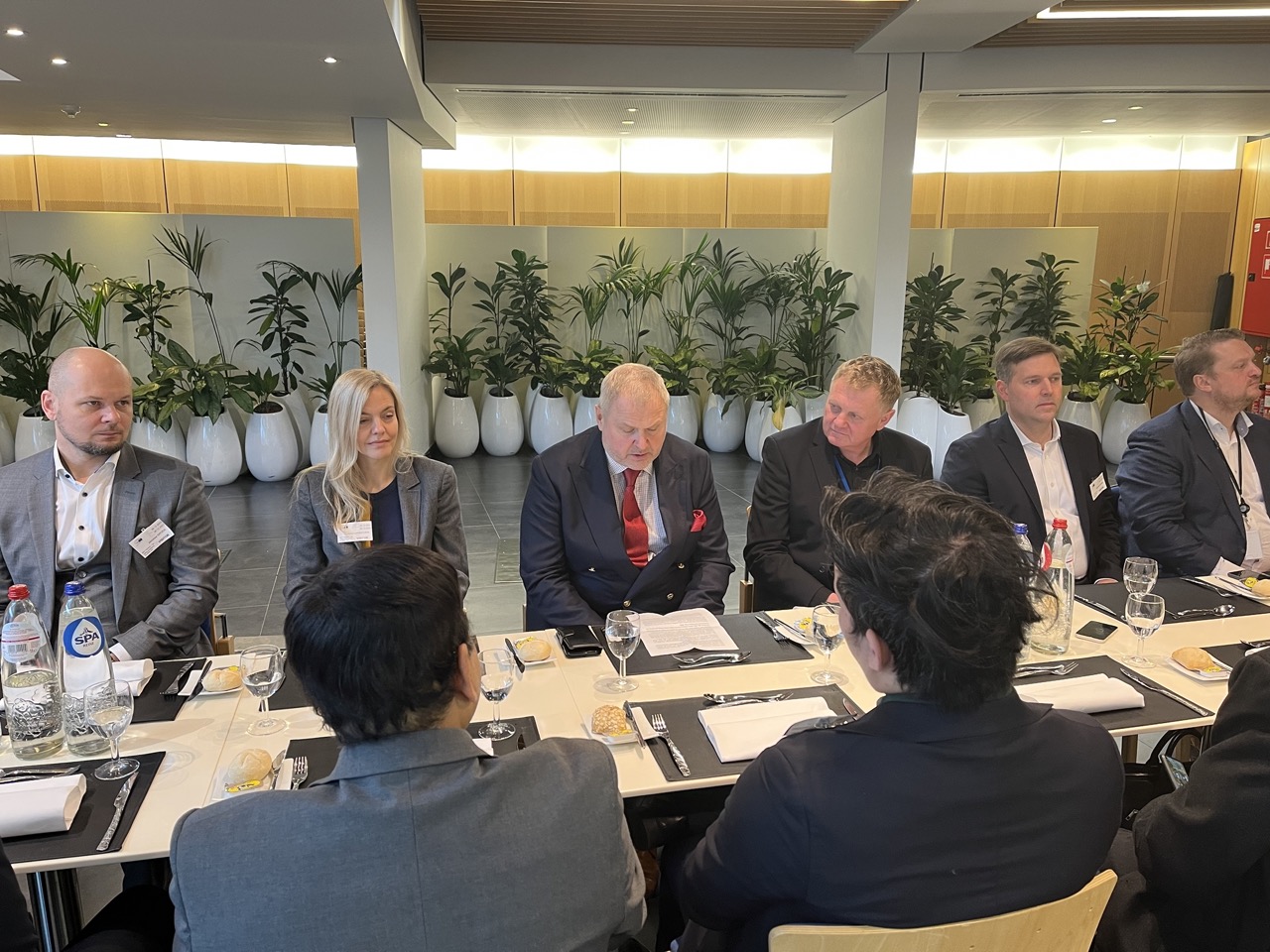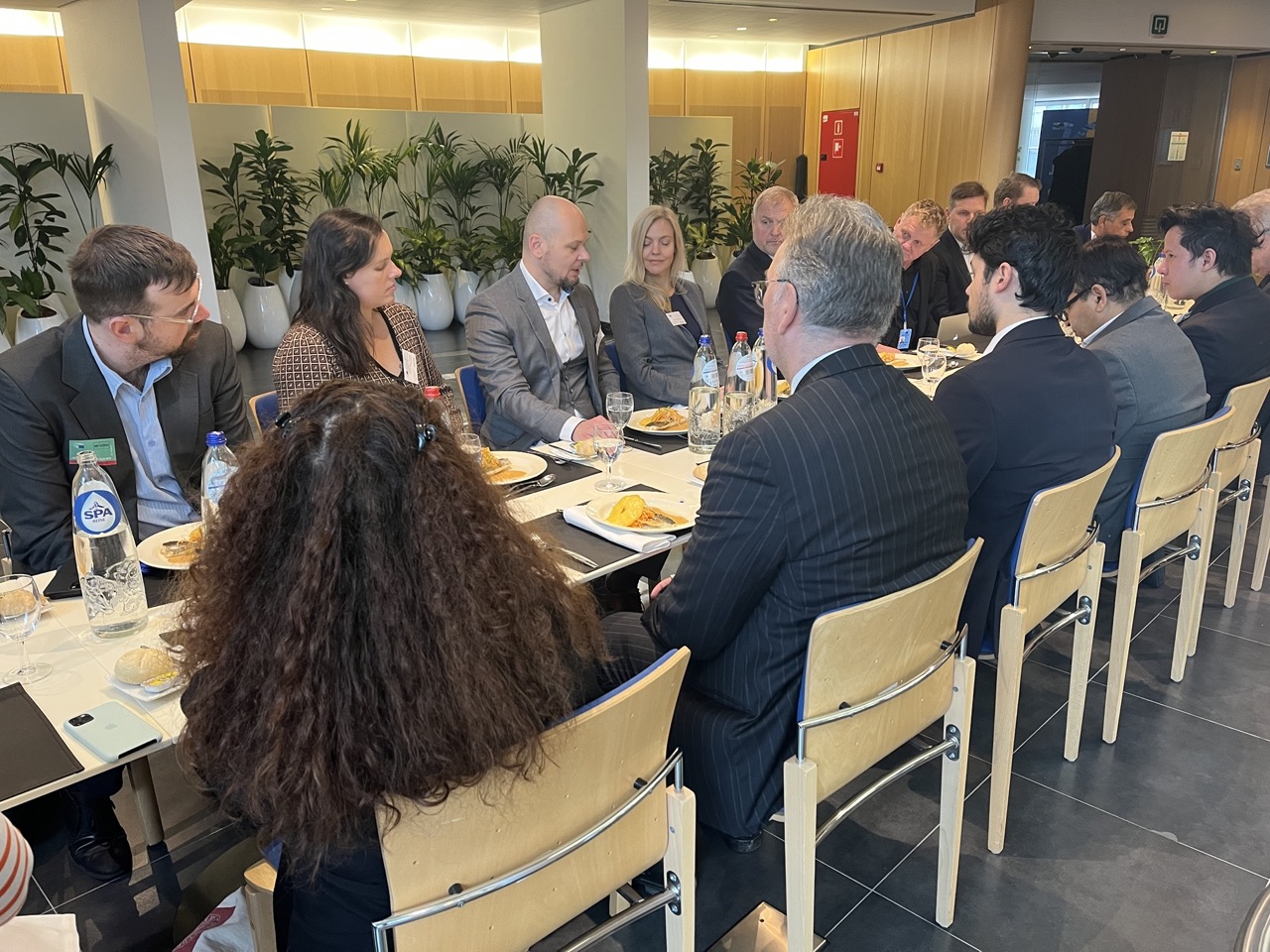The Energy Potential of the Baltic Sea: Is There Space for a Regional Innovation Valley and Closer Cooperation Among the Countries of the Region?

On Wednesday, 6 December, SME Connect in partnership with the Union of Entrepreneurs and Employers (ZPP) and the European Enterprise Alliance, organized a roundtable on the topic of “The energy potential of the Baltic Sea: is there a space for a regional innovation valley and closer cooperation among the countries of the region?”. Esteemed speakers and industry experts gathered at the European Parliament, to delve into the pressing issues surrounding offshore wind energy and the security challenges associated with the evolving energy landscape. This event was hosted by RIHO TERRAS MEP, member of the Committee on International Trade, Chairman of EPP SME Defence initiative.
The event, moderated by TOMASZ WROBLEWSKI, President of the Warsaw Enterprise Institute, featured prominent speakers including RIHO TERRAS, Member of the European Parliament and Chairman of EPP SME Defence; JAROSŁAW BRODA, Board Member of Baltic Power; RONALD LIESKE, Director of the Managing Authority and Joint Secretariat, Interreg Baltic Sea Region; DR. FRANK UMBACH, Energy Security Analyst; and DR. HORST HEITZ, Secretary General of the European Taxpayers Association.
RIHO TERRAS MEP opened the discussion, extended a warm welcome, setting the stage for an engaging conversation. His focus on the pivotal role of innovation and collaboration within the energy sector, particularly in offshore wind energy, created a foundation for a thought-provoking exchange of ideas. Riho encouraged attendees to share their perspectives, emphasizing the importance of fresh insights into the Baltic Sea’s potential. Addressing the challenges faced by Estonia, Riho highlighted the significance of innovation and cooperation, especially in offshore wind energy. He drew attention to local energy security, reflecting on recent challenges outlined in a report by the Estonian General Auditor’s Office. Riho underscored the precarious situation of dispatchable energy generation capacity, particularly oil shale-based energy, facing obsolescence due to CO2 quotas. Advocating for a nuanced approach, he supported the oil shale community and called for strategic thinking in Europe. In a cautionary tone, Riho referenced recent events with the Baltic Connector, a gas pipeline between Estonia and Finland, exposing vulnerabilities in the region’s infrastructure. He raised concerns about potential threats to gas, electricity, and data pipelines under the Baltic Sea, calling for a collective effort to safeguard the energy infrastructure in the Baltic Sea.

JAROSŁAW BRODA estimated around 100 gigawatts of green energy, envisioning the Baltic Sea not only as an energy source but as a transformative hub for green hydrogen. Emphasizing the need for coordinated infrastructure, including the distribution, production, and distribution of green hydrogen, Jarosław stressed the importance of healthy competition among projects to promote the best implementations at the lowest possible prices. He addressed the necessity of a level playing field, ensuring fair competition globally, and concluded by underscoring the importance of securing the supply chain within Europe to prevent over-reliance on external entities.
RONALD LIESKE explored dynamic changes in human, social, and business environments across the Baltic Sea region. Describing the Interreg program’s role, he emphasized its focus on bottom-up initiatives and collaboration among cities and regions. Ronald delved into diverse projects supported by the program, spanning innovation, resilience, water quality, blue economy, and energy transition. His insights revealed the positive impact of the program on communities and cities, fostering competition and innovation for a sustainable future.
DR. FRANK UMBACH introduced a crucial dimension by highlighting concerns regarding the security of underwater infrastructure. Pointing to potential vulnerabilities in the North Sea project, Frank emphasized the need for technological solutions to monitor and safeguard underwater cables. His remarks underlined the critical importance of resilience in the face of evolving security threats. Frank extended the conversation to address broader security challenges, emphasizing the need for international cooperation and innovative technological solutions. His insights resonated with the growing importance of securing energy infrastructure in an interconnected world. Dr. Umbach also highlighted the overall pre-condition for an enhanced regional cooperation on safety and security of critical maritime infrastructures in the Baltic Sea: an efficient national PPP crisis decision-making system, involving all governmental institutions and the private industry actors, responsible fpr operating, maintaining and repairing offshore windfarms and underwater pipelines, internet and electricity cables. Only such an effective and efficient national decision-making system guarantees an enhanced regional safety and security cooperation as a regional one is only as strong as its weakest national link. He admitted such a system is not really in place in Germany and other Baltic countries yet. It also needs to be tested repeatedly in exercises under various changing security environments and conditions.
DR. HORST HEITZ shifted the focus to small and medium-sized enterprises in large energy projects. Emphasizing the collaborative nature of such endeavours, where SMEs play a pivotal role, Horst highlighted the symbiotic relationship between SMEs and larger corporations. He emphasized that cooperation is the key to achieving shared goals in the energy sector, acknowledging the challenges faced by SMEs. Horst underscored the importance of affordability, cleanliness, and security in energy products, adding a practical dimension to the discussions. He emphasized the need for SMEs to collaborate effectively with larger companies for mutual benefit.
In conclusion, the discussions at the Baltic Energy Summit underscored the gravity of addressing security challenges, fostering innovation, and promoting collaboration to unlock the full potential of the Baltic Sea for renewable energy. As the energy landscape continues to evolve, this event provided an invaluable platform for industry leaders and policymakers to exchange ideas and collectively pave the way for a sustainable and secure energy future.

This press release has been co-authored by European Enterprise Alliance, an organisation that strives to create ideal regulatory and market conditions for employers’ organisations and businesses from Central and Eastern Europe.